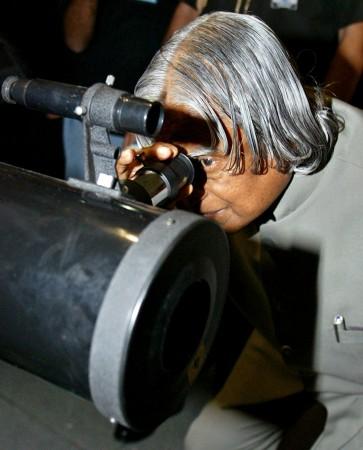
India has always been proud of Dr. APJ Abdul Kalam, the world-renowned space scientist but now we have yet another reason to be proud of the missile man. Scientists at NASA have named a new organism after Kalam.
Read: Kerala to Name Technological University After APJ Abdul Kalam
The researchers at the Jet Propulsion Laboratory (JPL), the foremost lab had discovered the new bacteria on the filters of the International Space Station (ISS) and named it Solibacillus kalamii to honour the late president.
"The name of the bacterium is Solibacillus kalamii, the species name is after Dr Abdul Kalam and genus name is Solibacillus which is a spore forming bacteria," said Dr Kasthuri Venkateswaran, senior research scientist, Biotechnology and Planetary Protection Group at JPL.
The filter on which the new bug was found remained on board the ISS for 40 months. Called a high-efficiency particulate arrestance filter or HEPA filter, this part is the routine housekeeping and cleaning system on board the international space station.

This filter was later analysed at JPL and only this year did Venkateswaran publish his discovery in the International Journal of Systematic and Evolutionary Microbiology. Venkateswaran explained that even though the ISS orbits the earth some 400 kilometres above, it hosts various bacteria and fungi. However, he dismissed the fact that even though the Solibacillus kalamii is not found on earth it is not an extra-terrestrial form of life.
"I am reasonably sure it has hitch hiked to the space station on board some cargo and then survived the hostile conditions of space," explained Venkateswaran.
Venkateswaran added that new bacterias are usually named after famous scientists.
He also added that the new bacteria may be of some use to the field of biotechnology. "These spore formers tend to withstand high radiation and also produce some useful compounds protein wise which will be helpful for biotechnology applications," Venkateswaran said.
Though the bacteria and its properties have not been analysed completely, Venkateswaran has said the new bug could be a key source for chemicals that can help protect against radiation damage.

















